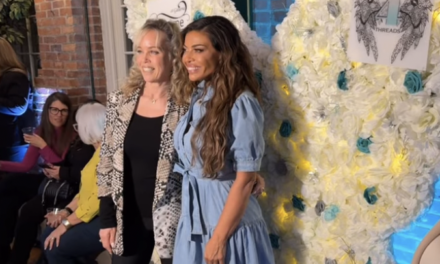
I am numb. I am stuck. I am sad. I am worried. For nearly six decades, writing has been my happy place; whenever I am challenged by life’s obstacles, I turn to writing. Through a troubled adolescence, bedrest during three pregnancies, raising a family, losing loved ones, and three cancer diagnoses, I always trusted how writing brought me to a special healing place.
Whether I was writing books, articles, or poems to express my own feelings or help others deal with theirs, I loved everything about the writing process.
How I Started Writing
My grandmother was also a writer, so the passion is already embossed on my DNA. My own passion for writing began at an early age. I was a 10-year-old only child when my grandmother and caretaker died by suicide in our home. To help me cope with this tragedy, my mother handed me a Khalil Gibran journal and told me to pour my love, grief, and feelings onto the pages of that journal.
For hours on end, I would sit on the floor of my walk-in closet, with clothes hanging in my face, writing by the light of its lone bulb. I learned that writing was and transformative and brought healing. I still call myself a writer. I also love teaching and sharing my passion with others.
I Kept Writing, Until I Couldn’t
Because of my history with writing, I knew it could always help save me in what was a chaotic world. I also write because writing is my calling. I have boxes of completed journals, each one having served over time as my confidant and best friend. On their pages, I jotted down feelings, emotions, dreams, and hopes. There weren’t many times when I wasn’t writing.
The sad part is that much of my writing stalled about six months ago when I was diagnosed with my third cancer in 20 years. I might have jotted a poem here or there, or an article idea, but I was unable to sustain the enthusiasm for any length of time. Sometimes illness does this, when our minds and bodies are focused on healing. I’ve learned to be very patient with myself during times like this.
A Shift in the Writing World
I started to read a little more which inspired some writing. However, I felt another shift occurring about the same time. The media was starting to talk more and more about the emergence of AI and its uses. The platform where I often submit articles rewrote their guidelines to say, “We do not accept AI-generated work.”
In my evolution as a writer, this was a shocking comment to witness. I had a visceral reaction that not only was my competition other writers, but it was now also AI. In social situations, when people spoke about AI, I’d bow out of the conversation, as if an allergy had overcome me – I did’t want to hear any more about it.
Fear of AI
Like many writers, my fear is that AI will play an integral role in stealing jobs from us. In actuality, it’s happening already. One business owner I know had a blog where she hired writers for content about yoga. She was so happy when AI became available, because she said, “It’s such a pain dealing with people and going back and forth in emails.” Of course, the fact that AI is free is another added bonus for some, although seasoned writers can tell work that’s been generated by AI.
While articles inform us that AI can help creative writers without replacing them, the entire situation is still daunting for me to fathom because as a reader, I like visualizing the writer, but all I’m seeing is a robot. Advocates of AI agree that it can enhance our work, but right now it’s not likely that it will replace us.
They say AI’s role will primarily be as a collaborator. I’m okay with this. After all, most writers use references in their writing.
As a young student, I collaborated with the World Book encyclopedias, and, in my graduate work, I collaborated with research papers found in library databases. What will this look like moving forward? We will wait and see.
Can Chatbots Replace Human Writers?
In a recent article in The New York Times, written by Stephen Lohr, he claimed that Chatbots “can write poetry, summarize books and answer questions, often with human-level fluency….but at times AI Chatbots have stumbled with simple arithmetic and math word problems that require multiple steps to reach a solution.”
I’d like to argue that point, as the sensitivity and warmth that poets bring to the page is often quite intimate and not something that can be created by a robot. I don’t believe a robot can ever honestly replace my feelings and emotions. After all, AI lacks the emotional understanding and complex situations of the human condition.
I also wonder about voice. We often choose to read certain writers because their voice resonates with us, but with AI we’re reading generative work, and I wonder about the implications of using a generated voice instead of an original one.
AI Experiment
When my memoir, Hummingbird: Messages from My Ancestors, was in its final stages, I decided to do a little experiment. I wanted to include a poem about hummingbirds at the beginning of the book. I visited ChatGPT and asked it to write me a poem. It was done in about five seconds.
I made some minor edits and submitted it to a number of magazines. After five or so rejections, I decided to write my own hummingbird poem. My originally created poem was immediately accepted for publication, so that’s the one I decided to include in the beginning of my book. This is only one example of where publishers choose original work instead of AI-generated work.
Of course I was thrilled at the results, but it leaves room for exploration as to the idea of what will humans do when bots take over so many of our jobs? Sometimes I wonder if being a senior makes me more apt to worry about the future. However, right now, my instinct tells me that it might be better to live in the moment because like in so many other life realms, our future is uncertain.
Living in the Moment
One way I live in the moment is by watching the birds and the sunset while doing needlepoint in my yard, the way I learned it from grandmother. Since her passing, I’ve crafted numerous needlepoint pillows and wall hangings for grandchildren and family. I love the idea of sharing passions and ideas, which is one of the reasons I fell in love with writing. Needlepoint and writing for me are both meditative, although the former is not as mentally challenging.
I hope to shake my despondency towards my lifelong passion for writing affected by the presence of AI. I’m forever hopeful because it’s not that easy to just let go of a lifelong passion. I have faith that there might be a larger project brewing inside of me. I’m patiently waiting.
Please Join the Conversation:
What do you fear about AI? Do you think Artificial Intelligence can replace original work from human creators? If you know that something was produced by AI, would you read or buy it? What limitations should be placed on AI, in your opinion?





